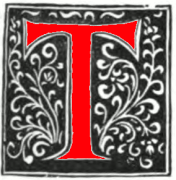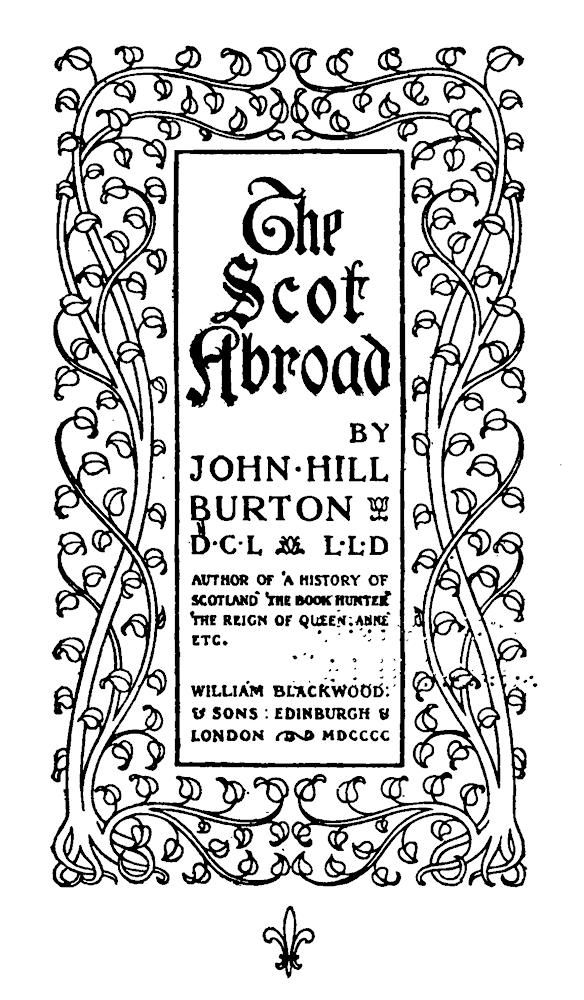[A rather light-hearted review of a light-hearted book, in which Dallas does not reveal his own Scottish origins. - Graham Law]
The Scot Abroad

he historian of Scotland has written an excellent book on the wanderings of his countrymen in foreign lands - a book that will interest Englishmen and fascinate Scotchmen. Of course, the very title of the book suggests joking; but as we find Mr. Burton himself joking about the propensity of his kindred to travel and about what he seems to regard as a mendacious patriotism. We suppose the time has at last come when the Scots can love "bonny Scotland," and yet not think it necessary to resent as an insult the rallying of their neighbours. No one, indeed, can laugh more heartily than Mr. Burton at the enormous nationality of his countrymen, who he says exhibit the curious contradiction of loving and lauding Scotland above all the regions of the earth, and of living in any region of the earth rather than there. With a merry twinkle in his eye and a chuckle on his tongue, he bows down to this intense nationality, and having already earned a solid reputation as the historian of the Scots in Scotland, comes forward in a serio-comic style to relate the history of the Scots in other lands. The subject suggests rambling, and Mr. Burton, as he goes forth upon his researches, doffs the full dress of stately history, and puts on the loose attire of a tourist. His rambles are chiefly in France, but he strolls to and fro with the ease of a traveller who has possession of the marvellous wishing-cap. Now he is in Scotland, now in France, now again in England, then in Germany, next back to France, and where he will be the following moment no one knows. Nor does this disorderly rambling tease and confuse the reader, for the author's enthusiasm drives us along without question. It would be difficult to name any work in which there is more happily combined genuine enthusiasm which the author cannot resist, with at the same time the power of laughing at his own earnestness. . . .

Mr. Burton has devoted a whole volume to the history of that ancient league which made France and Scotland fast allies. It was a league founded in a common enmity to England. The Kings of the house of Valois could by means of it fight their battle on British ground without sending an army there, and it enabled the Scots, whenever they could leave their homes, to fight England on the continent. It became a key-note in French history that England was to be fought from Scotland; and it became a necessary rule of English policy, that all must be right on the Border before it would be prudent to send an expedition to the continent. . . . [11b]
Mr. Burton's second volume is a sort of biographical dictionary of Scotchmen who have earned distinction out of Scotland, whether in war, in statesmanship, in letters, or in arts. He tells the story in succession of countless bands of Scotchmen who, having gone abroad to better their fortune, also earned not a little fame. Among these appear Duns Scotus, Hector Boece, George Buchanan, the Admirable Crichton, Sir Thomas Urquhart, John Knox, Sir W. Lockhart - Cromwell's ambassador at the Court of France, Lord Stair, John Law, William Paterson, and many more. It is not necessary that we should follow the fortunes of these in succession. Those who are interested in the fate of the Scot abroad will find in Mr. Burton's pages abundance of curious anecdotes. We do not think that he makes any important omission, unless it be a crime to overlook the private tutor of John Milton, who was a Scot from Loncardy, nurtured in philosophy and literature at St. Andrew's - Thomas Young. . . . [11d]
Link to Related Material
Bibliography
[Dallas, Eneas Sweetland]. "The Scot Abroad," The Times (31 August 1864): 11b-e. [Review of John Hill Burton, The Scot Abroad, 2 vols; Edinburgh: William Blackwood, 1864.]
Created 2 February 2024